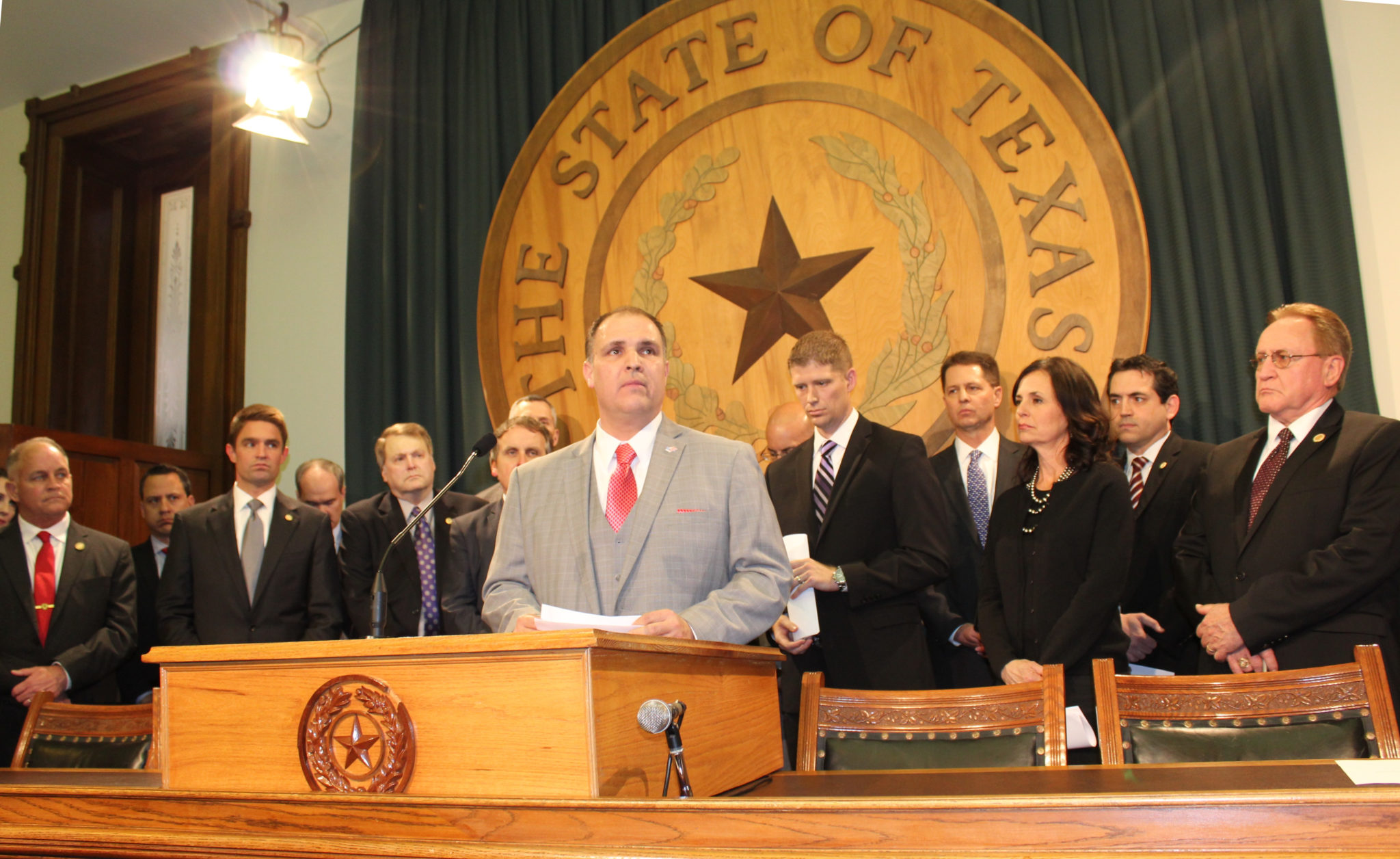Lawmakers Hear Proposals to Allow More Discrimination, Limit Ethnic Studies in College

House members considered a pair of bills Wednesday rooted in social conservative ideas about what’s wrong with universities, before briefly delving into a plan to let students access unspent state loan money. The first two got most of their attention.
We mentioned Fort Worth freshman Rep. Matt Krause’s House Bill 360 earlier this session, for its proposal to cut off state money to any school that requires its student groups to let any student join, regardless of their beliefs, status, race, gender and sexual orientation. Before the House Higher Education Committee, Krause’s defense of his bill was in line with what he told the Observer in February.
“We want a bill that allows all organizations to freely assemble and not be forced to accept members they don’t want to,” Krause said. “Even a momentary chill of free speech can do irreparable harm.”
He offered a committee substitute that, he said, removed “overly broad” language in the bill, and cut out “status, race, gender and sexual orientation”—leaving only “beliefs.”
Jason Hoyt, president of a national Christian fraternity, said the bill would help clarify organizations’ rights to pick and choose their members. His group, Beta Upsilon Chi, has taken fire before for only including Christian males, but Hoyt said they’ve resolved those issues at the university level.
Rep. Donna Howard (D- Austin) thought the entire conversation a waste of time. She said it “doesn’t sound like there’s some overwhelming discrimination” going on in student organizations that can’t be resolved on a case-by-case basis. She was concerned about formalizing the right to discriminate.
“I am proud to be part of the United States of America to have all these privileges,” she said. “I don’t know why we’re having all these discussions today, quite frankly. … This [issue] doesn’t seem to merit doing something here at the Legislature.”
Next up was another freshman Republican, Southlake’s Rep. Giovanni Capriglione, whose HB 1938, which would only allow courses offering a “comprehensive survey” of American history to count toward an undergraduate student’s six required history credits. Race, gender, and other special interest history courses wouldn’t count.
It’s the House version of a bill that Sen. Dan Patrick (R-Houston) has introduced, in response to a report from the conservative National Association of Scholars, which said courses at the University of Texas and Texas A&M spend too much time on Latino and African-American history.
Tony Diaz, the founder of Librotraficante who sounded the alarm about the Senate bill earlier this session, told lawmakers it “appears to be part of the GOP attack on ethnic studies. … To me, House Bill 1938 would take us back to 1938 in ethnic studies.”
Capriglione said that sort of criticism comes from a small group of activists whose complaints are misplaced. “This is not about race. This is not about ideology,” he said. “This is about academic quality.” Capriglione said he was not trying to exclude ideas, or remove any courses. He said his intent is to enhance civic engagement.
Rep. Roberto Alonzo (D-Dallas) wondered who had asked Capriglione to author this bill. Capriglione said no one in particular. Later in the hearing, the Texas Public Policy Foundation’s Thomas Lindsay admitted to having had something to do with it.
“The first duty of government is to defend the citizens,” Lindsay explained. “There’s a physical defense, but there’s also a metaphysical defense.” Lindsay said when we teach American history, that’s when we teach what it means to be American, and all students need a grounding in those same principles.
“It doesn’t matter what you look like, where you came from, or what religion you have,” he said. “America’s essence is an idea and you can’t defend what you can’t define.”
Having considered allowing more discrimination and discouraging ethnic studies, the committee turned to a more practical question: student loans.
Dan Weaver, assistant commissioner of the Higher Education Coordinating Board, told lawmakers that within a few months, $100 million will be sitting in a fund for the Texas B-On-Time loan program, which the board manages, but that there aren’t enough eligible students to spend it on. The program offers loan forgiveness to students who finish their degrees quickly.

Rep. Chris Turner’s (D-Arlington) House Bill 3265 would give the board the chance to spend that money on a financial aid program for veterans. Unused Texas B-On-Time money could be spent on the Hazelwood Act—a state benefit that provides qualified veterans and their family tuition for up to 150 hours of credit. Turner said Hazelwood has been so successful that demand has even outpaced what universities expected.
“This bill is about finding a two-fold solution. First, help schools collect more than what they’re using B-On-Time,” Turner said, “and second, try to find a solution to the funding gap we are facing.”
After the hours of testimony over the afternoon’s more controversial proposals, far less was said about Turner’s bill.
Weaver said since 2004 the coordinating board has been accumulating the extra B-on-time funds because the Legislature only appropriates so much for each year. For example, this next year the coordinating board is allowed to spend $40 million for B-on-Time loans, but will have collected $56 million in loan repayments. Weaver said that’s $16 million extra funding just sitting there, waiting to be spent.
All bills were left pending in committee.


